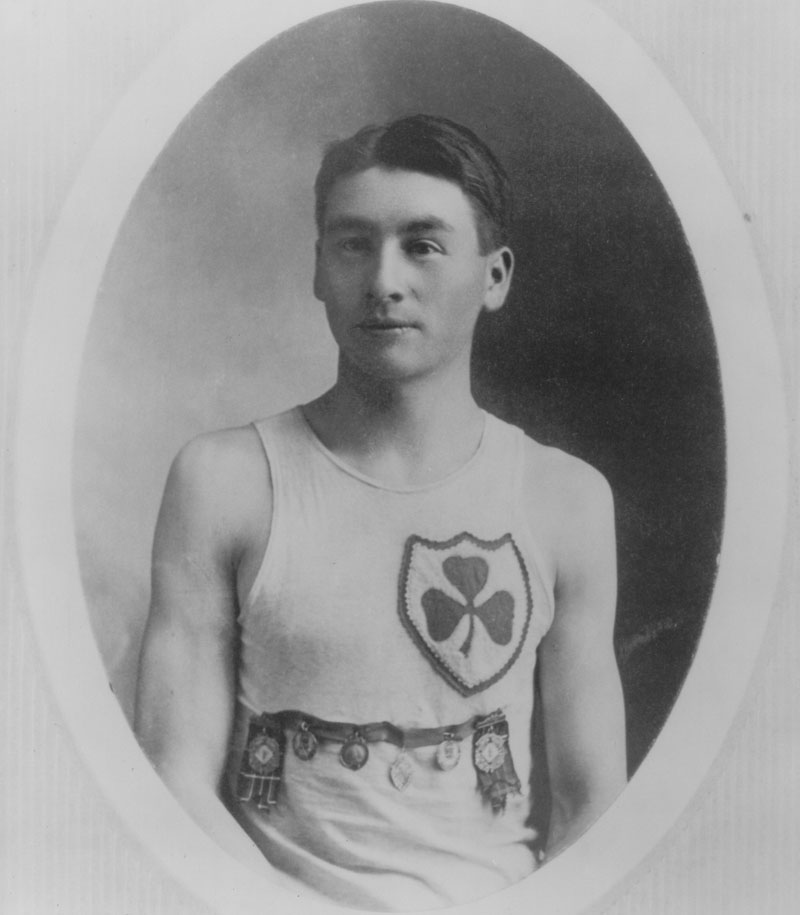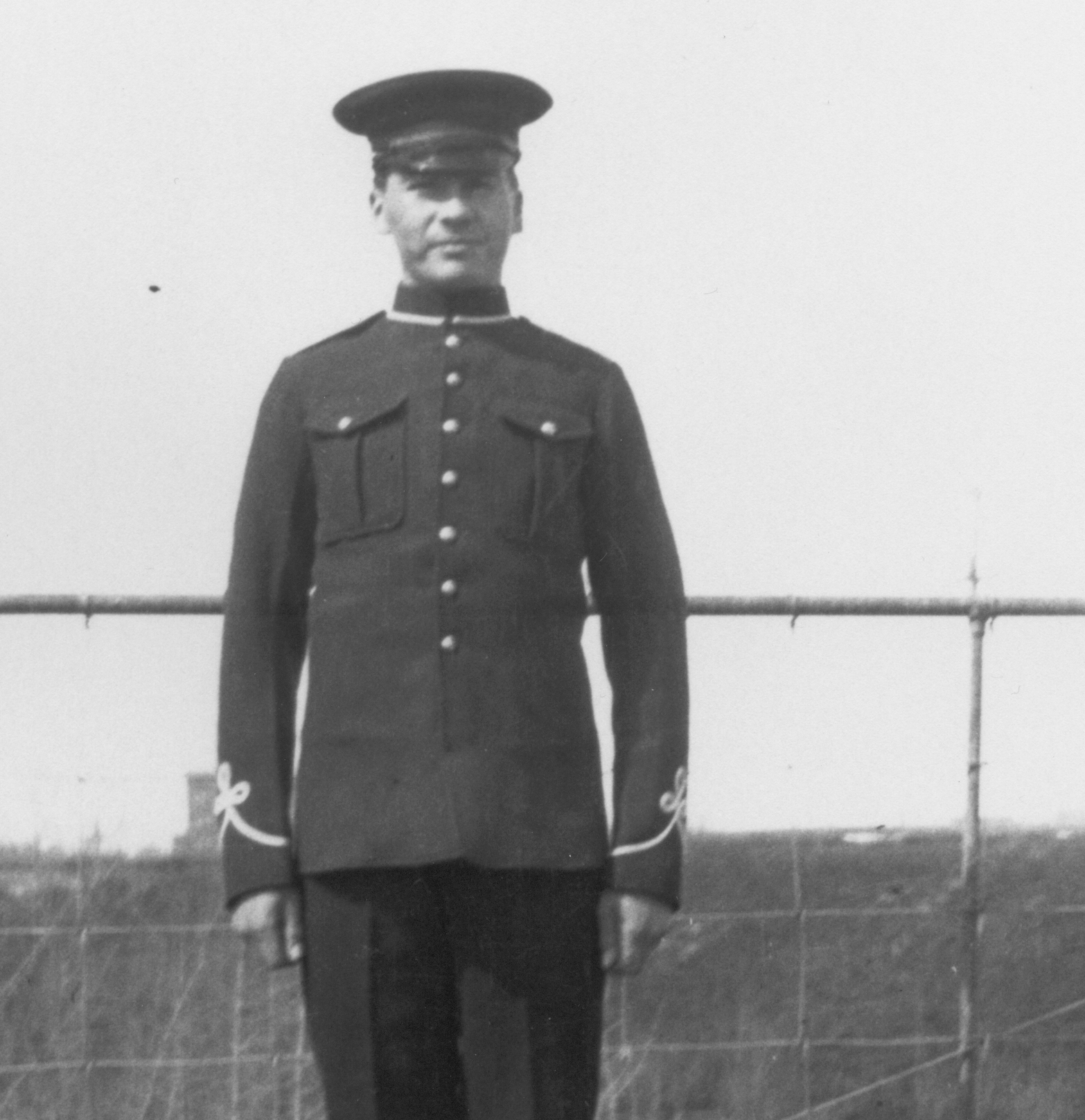Alex was born near North Battleford on Red Pheasant Reserve and he attended Battleford Indian Industrial School. It was during this time at school that he developed his athletic skills. Records indicate that as a youngster, he was excellent at boxing, cricket, soccer and baseball.
His athletic career blossomed when he moved to Edmonton in 1909 to live and work in his brother-in-law’s blacksmith shop. Decoteau soon changed jobs and became Edmonton’s first native policeman later that year.
The first record of Decoteau’s running skill surfaced the same year when he placed second in a one-mile race that a friend had nagged him into entering. This race, at Fort Saskatchewan, occurred May 24, 1909. He continued to run that summer, winning a five-mile race at the Edmonton Exhibition in June. Six days later he won another five-mile race at Lloydminster in the Western Canadian Record time of 28:41.6. Decoteau followed this later that summer with a 26:34.4 timing in Edmonton in the Hon. C.W. Cross Challenge Cup Race.
During 1910 and 1911 his race career continued to draw media attention. Decoteau won the 1910 Fort Saskatchewan ten-mile race in a time that was eight minutes faster than his nearest competitor. At the July 1st meet in Lethbridge he entered and won the half-mile, one-mile, two-mile and five-mile races. This success caused the sports writers to refer to him as “Champion Runner of Alberta”.
1912 saw great interest being shown in the Stockholm Olympic Games. One of Canada’s pre-Olympic Trials in track and field was held in Fort Saskatchewan. Decoteau once again won the featured ten-mile race in a time of 59 minutes and 59 seconds. This time qualified him to enter the official Canadian Olympic Trials in Montreal. Decoteau cramped up during 10,000 metre race at trials and dropped out. However, the 5,000 metre event was completely different with Decoteau winning the race. The Canadian Olympic Committee then ordered a new race between Decoteau and the favourite from Vancouver. Once again Decoteau was the winner, establishing a new Dominion record of 15:27.4.
Decoteau competed well at the Olympics in Stockholm. He placed second in his 5,000 metre heat and ended up a superb six in the final.
During 1913 to 1915, Decoteau ran some of his best races. These included the July 1st, 1913 competition at Edmonton where he was a multiple winner. He won the half-mile, one-mile and two-mile races. His efforts in the two-mile produced an Alberta record 10:35.2.
In 1914 he was promoted to sergeant in the Edmonton Police Department and went on to become one of Edmonton’s first motorcycle policeman. In 1916, following the outbreak of the Great War, he resigned from the police force to join the Canadian Army. Decoteau entered and won several races for service personnel while stationed in England. He entered one race and when he arrived for the start, discovered that it was a bicycle race. Decoteau borrowed a bike and promptly went out and won the race.
Alex Decoteau was killed by a sniper’s bullet in Passchendaele Ridge in France on October 30th, 1917. The news of his sacrifice prompted an Edmonton sports writer to write: “War has taken one of the greatest athletes in the country’s history”.
Decoteau was inducted into the Edmonton Sports Hall of Fame in 1967 and the Saskatchewan Indian First Nations Sports Hall of Fame.
Installed in the Saskatchewan Sports Hall of Fame in 2000.


